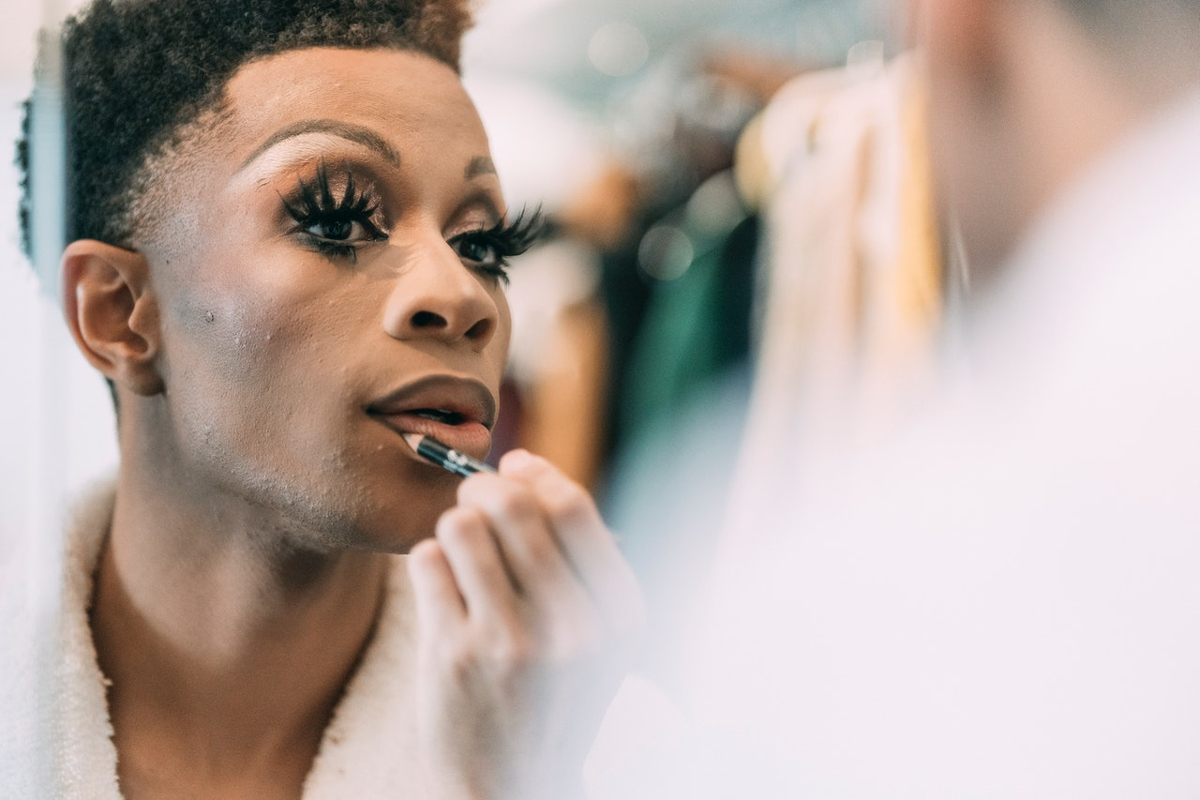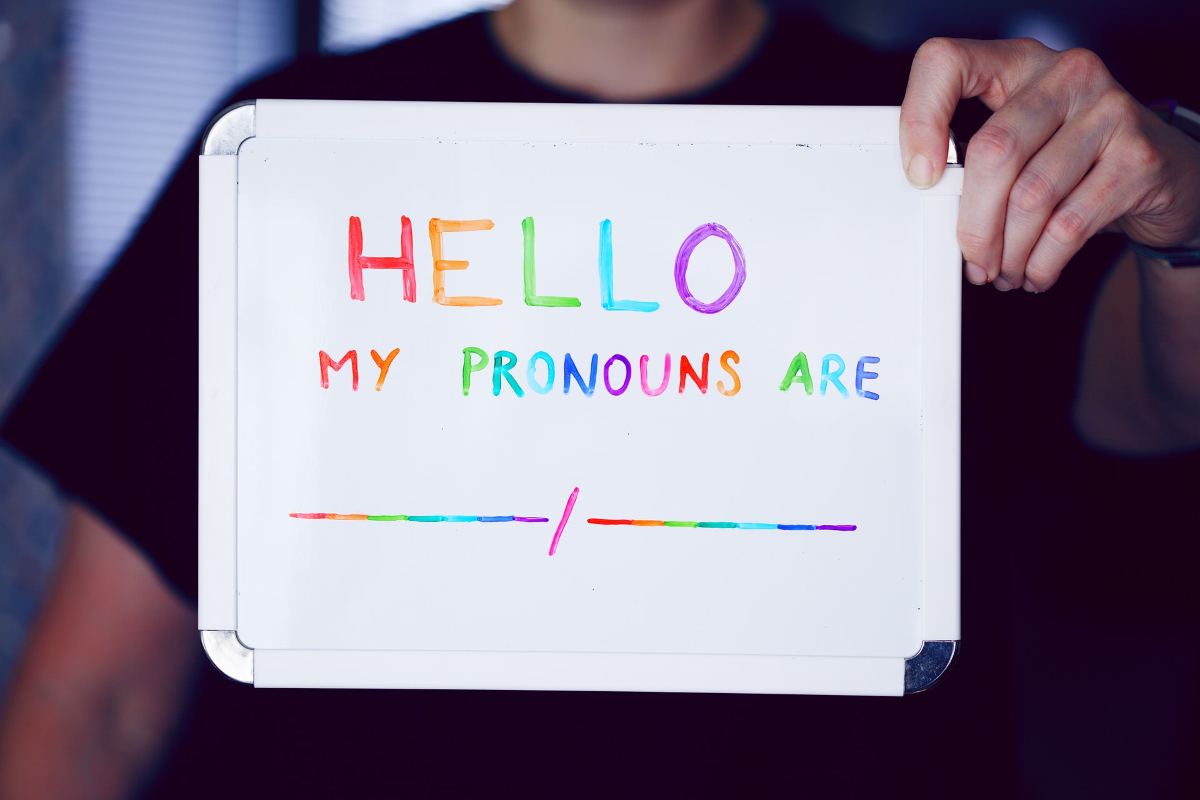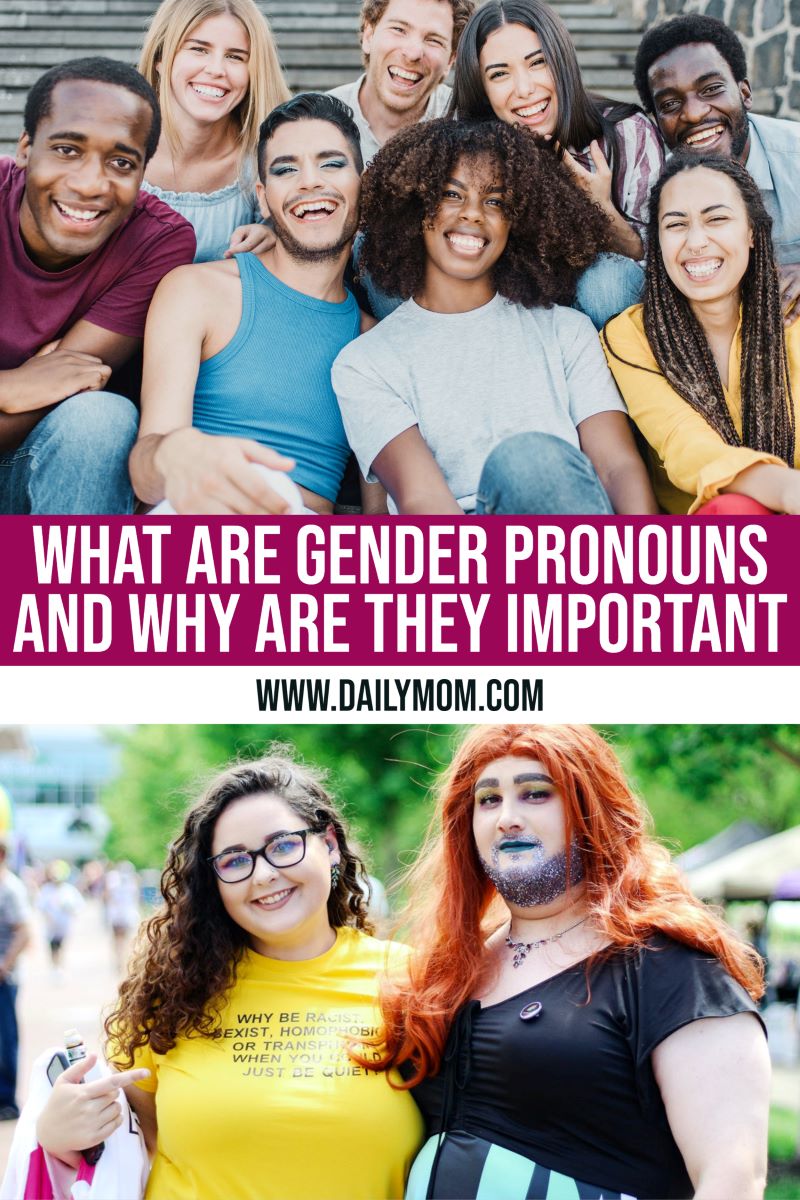Most people have heard of gender pronouns. Chances are you have heard people asking what someone’s pronouns are or have popped on a zoom meeting or gotten an email and seen someone with she/her/hers or he/they/them listed next to their name. While you may have heard the term gender pronouns or know that many people have a preference as to what pronouns you should use to address them, you may not know why they matter or why they are important to many people. If you are not quite sure what the deal is with gender pronouns but want to learn, here is your guide to what they are and why they are important.
Understanding Gender Identity
Before you can fully understand and appreciate the importance of gender pronouns, you have to understand gender identity. Gender identity is how someone views themself and how they refer to themself. It is a person’s concept of themself as male, female, both, or neither. Gender identity is how someone feels inside and how that person expresses their gender through everything from their clothing, behavior, and personal appearance.

A person’s gender identity may be the same as their biological sex or the sex they were assigned at birth but it may be different. The majority of people identify as either male or female. However, it is not always as straightforward as identifying as male or female. Some people feel like a blend of elements from both of those genders. For instance, someone can identify as a masculine female. Similarly, someone else might identify as a feminine male.
Many people do not identify as either male or female. These people often choose labels such as nonbinary, genderqueer, non-conforming, agender, or gender fluid. While these terms do not mean the exact same thing, they all mean that someone does not identify as being simply male or female.
READ MORE: 7 Meaningful Stories with Morals for Kids

Some people’s assigned sex and gender identity are pretty much the same. These people – people whose sex assigned at birth was male and who identify as male and people whose sex assigned at birth was female and who identify as female – are considered cisgender. People who feel like their assigned sex is different from their gender identity (for example, someone whose assigned sex is female, but they identify as male) are considered transgender.
Do not mistake gender identity for sexuality. Gender identity and a person’s sexual preference are two different things. Gender identity has nothing to do with who a person is attracted to. A gay man may identify as male while a straight woman may identify as nonbinary.

A person’s gender identity is an important part of how they see themself and how they present themself to the world. For most cisgender people, this is a very straightforward thing. For others, this can be complicated. In our society, which is heteronormative, meaning it promotes heterosexuality as the “normal” and predominate sexual orientation, someone who does not neatly fit into either male or female can feel unaccepted, shamed, and bullied.
So now for the gender pronouns part of things.
What Are Gender Pronouns?
First off, a super quick English lesson. Simply put, pronouns are those words we use besides our name to identify ourselves (I, me, my) or someone else (he, she, her, him, they, theirs). When we talk about ourselves, we use pronouns like I and me. When we are talking about a girl, we typically refer to that person with pronouns like she, her, and hers. Similarly, when talking about a boy we use pronouns like he, him, and his. Then, when we talk about a group we usually use the neutral pronouns (they are neither male nor female) they, them, and theirs. Got it?

It is important to know about gender identity because a person’s gender identity determines their gender pronouns. That is because gender pronouns, which are male, female, or neutral, reflect a person’s gender identity. A female-presenting person (someone who looks female to you) may want to be referred to as she/her, but just because someone looks female does not mean they identify as a female. That person may not identify as female and therefore prefer gender pronouns such as they/them.
Sometimes people prefer a mix of gender pronouns and may identify as she/they or even he/her/they. Gender pronouns are different from person to person because we all see ourselves differently.
Again, a person’s sexuality does not determine their gender pronouns. A straight woman may prefer she/they or even they/them and a gay man may prefer to use he/him/his. Although both are important parts of a person’s identity, they are separate and distinct concepts.
READ MORE: Boost Your Daughter’s Confidence Through Her Incredible Positive Traits
The Importance of Gender Pronouns
Gender pronouns reflect how a person sees him/her/themself. Acknowledging someone’s gender pronouns affirms their identity. It says that you see them, respect them, and support them.
It is important to remember that the way someone appears in terms of gender expression – how they present themselves outwardly through behavior, clothing, voice, or other characteristics – does not necessarily indicate anything about their gender identity and which gender pronouns are most appropriate for them. That is because society identifies certain things as masculine or feminine. These things generally change over time and vary across cultures.

For transgender and nonbinary youth especially, being sensitive to and acknowledging their gender pronouns can be a really meaningful way of validating their identity when many people are quick to dismiss them for being too young or not really knowing their identity yet. The truth is that a person’s gender identity starts to form as young as two and three years old. These young people often have a tough time and can use all the allies and support they can get.
READ MORE: 10 Best Ways to Avoid Workplace Drama

If you are not sure what gender pronouns someone prefers, just ask. They are not going to be offended. They will likely be happy you asked – everyone loves to feel validated no matter how they identify. If you happen to misgender someone and they correct you, simply apologize, use the correct gender pronouns moving forward, and move on. Apologizing shows that you care and are sorry for the mistake. The important thing is to keep learning and understanding that people see themselves along a larger spectrum of gender than just male and female.
Being sensitive to people’s gender pronouns is a great way to show that you respect them and who they are. It is a simple but powerful way to acknowledge someone. You may not have always considered someone’s pronouns, but it is never too late to start. So the next time you meet someone new, introduce yourself with your name followed by, “I use her pronouns.” You might just make someone’s day.
WANT TO READ MORE?
INSERT RELATABLE ARTICLE TITLE HERE
CONNECT WITH DAILY MOM
💖 NEWSLETTER: DAILY READS IN YOUR INBOX 💖
Sign up to receive our picks for the best things to do, see and buy so you can relax and focus on more important tasks! Let us help you be the best version of yourself you can be!
BE SOCIAL WITH US
📌 LOVE IT? PIN IT!📌

Sources: Sex and Gender Identity, Understanding Non-Binary People: How to Be Respectful and Supportive
Photo Credits: unsplash.com, pexels.com









































